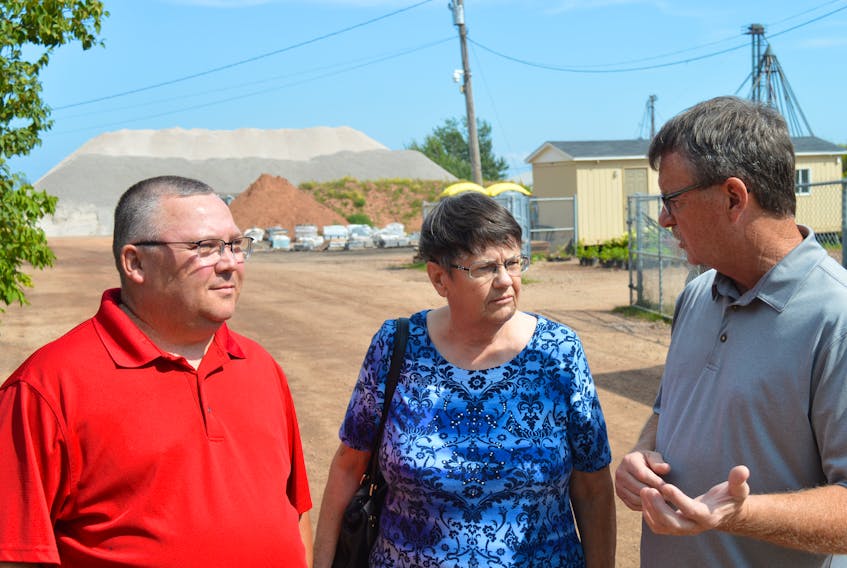CHARLOTTETOWN, P.E.I. — Residents in Charlottetown's Parkdale neighbourhood have had it with gravel trucks not abiding by the city’s bylaws and want something done about it once and for all.
And, their city councillor, Terry MacLeod, vows to bring all of the players together to find common ground.
This problem isn’t a new one for residents living on streets such as Beazley Avenue, Kensington Road and Garfield Streets. Once the gravel shipments arrive, piles of it are stored at the city’s port and on Kensington Road.
Anna Hardy, a senior who lives on Garfield Street, said pollution is a significant factor. The dust stirred up by trucks carrying gravel makes it impossible to enjoy a good quality of life.
“You can’t enjoy your deck in the summer, you can’t keep your windows open and it’s hard to sleep at night,’’ Hardy said, adding that one day recently she counted 25 gravel trucks using Garfield Street in a two-hour span even though the city’s bylaws prohibit that.
MacLeod said according to the city bylaws, trucks are restricted to Beazley Avenue, Kensington Road and Walker Drive. But no one is policing the trucks.
“The frustration point for residents has boiled over,’’ MacLeod said. “This is a non-conforming use that has caused a lot of grief over the years, since long before my time. You can’t seem to get an answer for the residents and it’s very frustrating.’’
MacLeod said there are a number of issues: dust in the neigbourhoods, the height of the gravel piles, trucks not abiding by the truck routes and trucks that aren’t tarping over the gravel. The latter issue is a safety concern, the councillor says, because the gravel will fall off the back of the truck onto the streets, creating the potential for broken windshields or a hazard for cyclists.
As to why trucking companies don’t require tarping their loads, MacLeod said he isn’t sure what the rules are. He can’t get an answer. Everyone pushes the issue to another department or simply says the bylaws aren’t written in stone.
So, MacLeod has given the city administration direction to get all of the players together — the Charlottetown Area Development Corporation, Port Charlottetown (Charlottetown’s harbour authority), the provincial Department of Transportation and Infrastructure Renewal, the city’s planning, public works and police departments, as well as the companies responsible for moving and using the gravel.

Kevin Clory, a resident of Kensington Road, who lives in an apartment next to the gravel pit, said the laneway into the pit is an issue. While it’s watered twice a day, he said in the hot, dry weather that’s not enough.
“We’re asking them to pave it because we have a senior here; we have a lady next door on oxygen,’’ Clory said. “She can’t go into the backyard or open here windows because of the dust.’’
The woman declined an interview request but pointed to a sign in her window that reads: "oxygen in use".
“My wife and I purchased a bench to place outside her door to give her a few moments of fresh air.’’
MacLeod said he and the residents understand the gravel pits were there long before many of the residents but pointed out that there has been a lot of residential growth. He’s hoping some kind of compromise can be reached between all of the partners.









